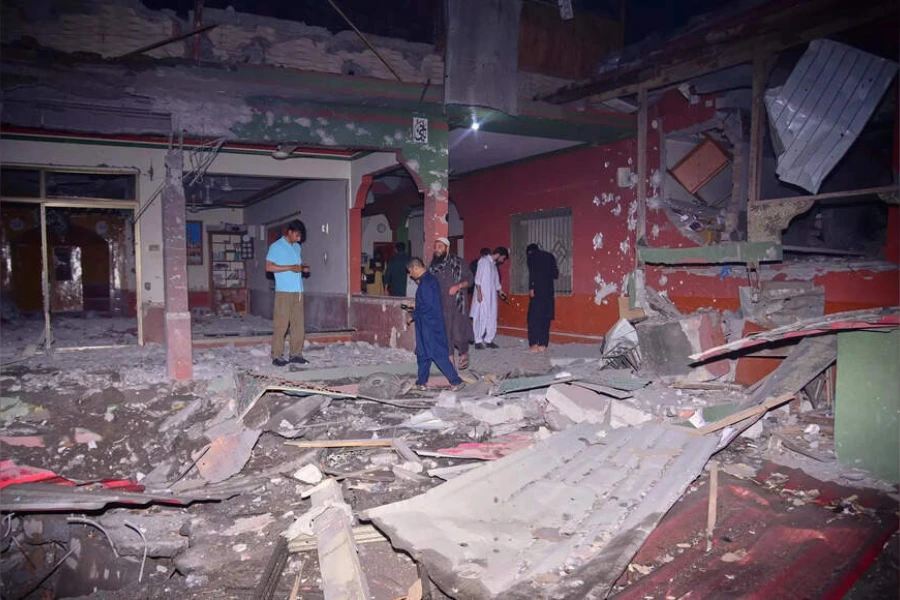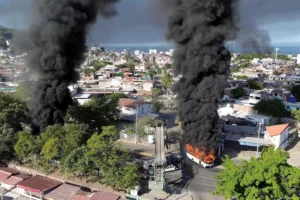
In Carrying out a large-scale ‘Operation” along the Line of Control (LoC), the Indian Armed Forces launched ‘Operation Sindoor’ on 7 May 2025. It was at missile sites at Pakistan and Pakistan occupied Jammu and Kashmir (PoJK) terrorist infrastructure sites. News of the operation came soon after the Pahalgam terror attack. This was the attack that killed many Indian civilians that ignited calls for action on the part of India.
Nine terrorist sites targeted in precision attacks
In a statement issued from the Ministry of Defence, Indian Forces conducted precision attacks on nine significant places of terrorist infrastructure. These were run and facilitated these sites by banned terrorist organizations including Lashkar-e-Taiba (LeT), Jaish-e-Mohammed and Hizbul Mujahideen. The Indian Government clarified, no Pakistani military sites are included. Also, the targets of the attack were only focus on sections of cross-border terrorism only.
“The ministry stated on X (formerly Twitter) that these missiles hit the core of terrorist activities that have made it impossible to maintain peace in the region.”
Pakistan Fires Back Artillery Shelling in Response Along the LoC
In response, the Pakistan Army responded with mortar shelling on forward villages in Poonch and Rajouri, Jammu and Kashmir.
Reports indicate that heavy shelling was targeted across the Krishna Ghati, Shahpur, Mankote, Laam, Manjakote and Gambeer Brahmana. Reports indicate that it resulted in six civilians killed and over thirty reported injured.
The developments have led to the suspension of commercial flight services over parts of northern India including Jammu, Punjab and Himachal Pradesh as a precautionary measure.
Civil Defense Activities Contemplated
On May 6, one day prior to the operation, Union Home Secretary Govind Mohan assessed the nation’s readiness for a possible outbreak of hostilities. The civil defense exercises encompass, practice drills, activating air-raid sirens, maintaining underground shelters. It will ensure that they educate civilians on how to protect themselves from hostile attacks.
These exercises demonstrate precautionary measures outlining public safety during ongoing border tensions. The tensions have made the recent rounds of news reports around the globe.
International Reactions: UNSC and China Call for Restraint
The United Nations Security Council (UNSC) held private discussions regarding the situation. They urged all parties to tone down rhetoric and indulge in diplomatic dialogue with India and Pakistan. No statement was made to clarify the discussions, however, Pakistan claimed the discussions were in line with its position.
In the interim, China urged India and Pakistan to exercise the utmost restraint. They stated that stability in the region is imperative. “We call on both sides to put aside everything else, and remain focused on a larger purpose of peace and stability by remaining calm and avoiding further escalation.” the foreign ministry said in a press briefing.
China would also reiterate its position against terrorism in all forms. It condemned the severity of the Pahalgam terror attack.
Community Voices: Daughter of Victim Backs Operation Sindoor
In an emotional public statement, Arathy, the daughter of N. Ramachandran — one of the victims of the April 22 Pahalgam incident — was supportive of the “Operation Sindoor.” She commended the Indian Army and government for taking swift and decisive action. She hoped it would bring justice and closure to the affected families.
“There couldn’t be a better name for it than Operation Sindoor,” she said while saluting Prime Minister Narendra Modi and the military.
Tension Remains Heightened Across the Border
While both nations are currently on high alert, the Indian government will continue to monitor the situation. Security arrangements were put on the highest alert in border areas and intelligence agencies were put on heightened alert to prevent any further retaliation.
Despite the fact that the operation represents a definite military operation, the measure of success is still centered on reducing civilian casualties and keeping the peace in the region. According to recent news updates, Operation Sindoor makes a strong statement against terrorism, but the future, will depend on dialogue and diplomatic measures.






Can you be more specific about the content of your article? After reading it, I still have some doubts. Hope you can help me.
Thanks for sharing. I read many of your blog posts, cool, your blog is very good.
Good article. I will be facing many of these issues as well..
wonderful submit, very informative. I’m wondering
why the opposite experts of this sector don’t realize this.
You must proceed your writing. I am confident, you have a great readers’
base already!
Oh my goodness! Amazing article dude! Many thanks, However I am going through issues with your RSS. I don’t understand why I am unable to subscribe to it. Is there anybody else having similar RSS issues? Anyone who knows the answer can you kindly respond? Thanks!!
Can you tell us more about this? I’d care to find out some additional information.
Hello, i think that i saw you visited my web site thus i came to “return the favor”.I am attempting to
find things to improve my web site!I suppose its ok to use a few of your ideas!!
Heya i am for the first time here. I came across this board and I find It truly useful & it helped me out much. I hope to give something back and help others like you helped me.
Terrific post but I was wondering if you could write a litte more on this subject? I’d be very grateful if you could elaborate a little bit more. Thanks!